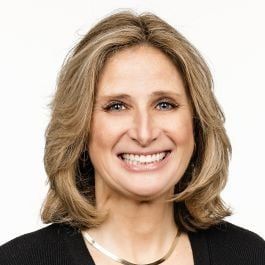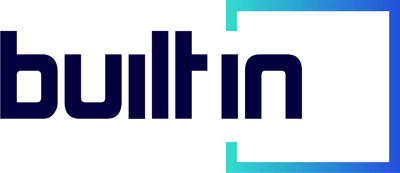7 Leaders Give Their Advice for Remote Mentorship
March 26, 2024
Gradient AI's Eric Benny among seven mentors from culture-focused tech companies who share their advice on what makes a great mentor

The relationship between managers and the people who report to them is a cornerstone of every organization. One clever way businesses enhance these hierarchies is through mentorship programs, which often provide additional avenues for stronger connection, career development, productivity and company culture.
Mentorship is valuable, regardless of whether the relationship is organic the result of a company initiative. In a recent survey from Oliviet Nazarene University, 76 percent of respondents said that mentors are important, but only 37 percent currently had a mentor.
Additionally, the survey concluded that professionals who had mentors at their current jobs were happier than those who didn’t. Regardless of who an employee’s mentor is — their direct manager, a senior colleague or an external mentor — a mentorship relationship provides resources and support a mentee may not normally have access to in their current role.
Built In had the chance to speak with seven different mentors from culture-focused tech companies to hear their advice on what makes a great mentor. One common piece of advice: Connect early, often and in person when you can with your mentee. Read more advice from the mentors below for some great ideas to make mentorship a rewarding experience for everyone involved.

Eric Benny
Staff Software Engineer • Gradient AI
Gradient AI brings state-of-the-art artificial intelligence and machine learning SaaS solutions to the insurance industry.
How do you ensure your mentee is getting the support they need from a professional standpoint, whether that's through weekly check-ins, collaboration tools, etc.?
Weekly check-ins can be helpful if both people find the structure useful. Keeping an open line of communication is critical. This can be less formal check-ins, or side-sharing questions and new information. Whenever I learn something new or find an interesting article, I try to share that with the people that I think could also benefit from it.
Having good documentation and examples for processes and patterns used within the team allows mentees to learn and familiarize themselves with these topics before jumping into work. It’s also useful for these documents to contain references to provide additional opportunities to gain context and knowledge. This documentation can allow new team members to contribute more quickly and confidently. For software engineers, code reviews are a great way to collaborate on a task and give direct feedback.
How do you look for opportunities to get your mentee involved in the company culture?
Encouraging folks to present their work to others is a good way to gain visibility throughout the company and solicit feedback in a group setting. We hold monthly chapter meetings for the different engineering disciplines which are a great opportunity to learn what others are working on and to present on topics that interest you.
I try to generally encourage people to reach out to me or others whenever they have questions. One thing I really enjoy about Gradient AI is that everyone is willing to help and lend their time regardless of the team or topic. It’s something I’ve benefitted from when learning from others, and I try to make myself as available as possible to anyone that I may be able to help.
Relying too heavily on scheduled meetings will often lead to delays, so feeling comfortable reaching out is something that’s very important in a remote environment and helps facilitate the types of conversations you might expect to have in an office setting.
“At Gradient AI, I really enjoy that everyone is willing to help and lend their time regardless of the team or topic.”
What advice do you have for other mentors who want to strengthen their approach to remote mentorship?
The remote workplace can make mentorship a bit more difficult without the opportunity to see people daily — which is why maintaining and encouraging an open line of communication is key. The scheduled meetings can be useful for more formal check-ins, but I think building a level of trust and comfort so that both people feel comfortable reaching out at any time helps ensure that everyone gets the most out of the relationship.

Michael Smith
Head Of Advertising Intelligence at Sensor Tower • Sensor Tower
Sensor Tower’s software suite provides innovative mobile performance, trend insights and ad network products that produce enterprise-level data on the global app economy.
How do you ensure your mentee is getting the support they need from a professional standpoint, whether that's through weekly check-ins, collaboration tools, etc.?
If the organization is not healthy, I first work to fix that. Then, I focus on personal connection, career coaching, collaboration tools, our purpose and ownership.
Building personal connections demands recognizing individual needs and aspirations, often through regular in-person or virtual meetings. This helps them align and engage with the work. Career coaching is crucial and requires an understanding of staff roles and the industry. As I guide staff, I draw upon my research and experience and tailor the advice to help them navigate their career path. To collaborate, we have some essential tools: chat, meetings, email, shared docs and wikis. I work with the team to create a clear communication plan for seamless teamwork and coordination with other teams.
Having a strong purpose enhances team motivation and helps us drive towards common objectives, our company vision and mission and team members’ own goals. I encourage ownership among team members to develop their personal investment in their work, leading to higher productivity and personal fulfillment. Ultimately, I want to empower each team member, ensuring they feel valued and capable of contributing to our collective success.
How do you look for opportunities to get your mentee involved in the company culture?
Company culture isn’t just happy hour drinks, holiday parties or swag. It is a combination of shared routines, interactions, experiences and identity that characterize how a staff member connects with their group — whether that be a team, a hybrid group aligned on shared interests or the entire company. It’s like a product, offering teams purpose and social connections without forced promotion, eventually becoming part of their identity.
“Company culture isn’t just happy hour drinks, holiday parties or swag. It is a combination of shared routines, interactions, experiences and identity.”
For managers in companies where culture is still developing, fostering a microculture within the team is key. Personally, as a manager, I start with an assessment of what I think the company culture is and develop a written prototype of what I think the culture should be, adapted for my team, and I write all of this down in a strategy document. Then, I analyze the company values — most companies have them — and define in concrete behavioral terms what it looks like to live those values. I might also introduce essential team values, keeping the list concise to ensure memorability and engagement. Essentially, strong cultures emerge from the systematic cultivation of these team microcultures for overall company culture growth.
What advice do you have for other mentors who want to strengthen their approach to remote mentorship?
To strengthen remote mentorship, I first prioritize getting to know each mentee. I find that personal connections foster trust so that they receive guidance more openly and thoughtfully. Regular in-person meetups are essential, and I include the team in planning to help the events become memorable bonding experiences rather than necessary travel. By navigating through organizational chaos and bridging gaps between resources, technology and teams, I am a trailblazer helping to promote a smoother workflow, and a smoother workflow lowers the barriers to innovation.
Within our team, I cultivate self-organization, a companion to ownership — I don’t think you can have one without the other. Teams that self-organize develop a solidarity and resilience that I’ve never seen otherwise. They’re pleasantly and diligently engaged in delivering positive outcomes, and it’s no surprise that those teams tend to have a lower turnover. And even though every member of our team works remotely in various parts of the world, I mentally feel like we’re meeting in person. I think this is because we have already physically met, and we are conversing so frequently every day.

Shane Mulrooney
Founder & General Counsel • New Era ADR
New Era ADR is a virtual mediation and arbitration platform designed to resolve legal disputes in less than 100 days, save businesses and individuals time and expenses and prevent gamesmanship in litigation.
How do you ensure your mentee is getting the support they need from a professional standpoint, whether that's through weekly check-ins, collaboration tools, etc.?
Ensuring that my mentee receives the necessary support from a professional standpoint involves a combination of strategies. Weekly scheduled check-ins are crucial for maintaining alignment and preventing us from veering off track with tasks, follow-ups and major priorities.
However, in a remote work environment, this alone may not suffice. I make myself readily available for spontaneous communication through platforms like Slack or text messages, adapting to what works best for us. In an office setting, the ability to casually discuss problems or brainstorm solutions by popping into someone's office is invaluable. Replicating this dynamic remotely requires intentional effort. Encouraging my mentee to reach out at any time during working hours without feeling like they're intruding is essential. I actively promote quick messages or impromptu Zoom calls for brief discussions when necessary, fostering a collaborative atmosphere and enhancing productivity.
How do you look for opportunities to get your mentee involved in the company culture?
When it comes to integrating my mentee into our company culture, being part of a small team certainly facilitates the process. We often engage in team activities together, fostering a strong sense of cohesion. However, I take proactive steps to ensure my mentee feels fully immersed in our culture. I facilitate introductions between my mentee and other team members early on, orchestrating conversations to help her quickly integrate and feel connected. Additionally, we have a practice of holding regular cross-functional one-on-one meetings, though not necessarily weekly, which allows everyone to gain exposure to different parts of the business and each other.
Encouraging my mentee to reach out to others on the team has also been important. When she brings up a need or question to me, I often redirect her to someone else who may be better suited to assist, empowering her to initiate these interactions herself. Finding the right balance between respecting others' time and fostering an open culture is crucial. Yet, in a remote setting, I believe it's important to encourage more proactive outreach, given the lack of organic collaboration that naturally occurs in an office environment.
What advice do you have for other mentors who want to strengthen their approach to remote mentorship?
My advice would be to initially lean towards being more involved and connected in your remote mentorship approach. For instance, my mentee and I held twice-weekly regular one-on-one check-ins for the first nine months. I also maintained an open-door policy throughout the rest of the week.
As your mentee gains confidence, independence, and solid working relationships with others on the team, you can gradually scale back these interactions. It's better to err on the side of being overly present initially rather than not being available enough. It's easier to scale back a redundant process than to try to introduce a new one later on.
“It's better to err on the side of being overly present initially rather than not being available enough..”
However, as with any mentorship relationship, it's essential to provide your mentee with enough freedom to experiment, make mistakes, and learn independently. Be cautious that your increased availability doesn't inadvertently lead to micromanaging. Similar to being an effective manager in an office setting, ensuring your mentee never feels isolated is crucial in a remote environment. Offering ample support while allowing room for autonomy is key to fostering growth and success, not just for your mentee but for everyone in a remote workplace.

Alex Dao
Engineering Manager • Valon
Valon is a financial wellness platform oriented for a simplistic, dependable and human mortgage lending experience.
How do you ensure your mentee is getting the support they need from a professional standpoint, whether that's through weekly check-ins, collaboration tools, etc.?
I think this starts with truly understanding your mentee’s personal goals. Everyone is unique — what they care about, what they are motivated by and how they respond to feedback and advice. I try to begin any relationship by getting to know the other person on more than just surface-level stuff. The most important foundation of mentoring is trust, and being intentional about connecting with your mentee will fast-track building that up. Once you have that trust, it’s a lot easier to figure out how to provide the right amount of support and tailor it to that person.
If you’re managing them in an official capacity, then you should at minimum have a weekly one-on-one. For more general mentorships, the cadence can vary. Typically, the more senior the mentee, the less frequent the cadence needs to be because the topics covered are more strategic and happen over longer time periods.
How do you look for opportunities to get your mentee involved in the company culture?
As a mentor, you usually have access and visibility to more of the company than the person you’re mentoring, whether that’s due to your role, relationships or experience. Because of this, you have the ability to highlight or provide opportunities that they otherwise wouldn’t have been exposed to.
One person I’ve been mentoring has been really interested in learning about what goes into growing a team. As an engineering manager at Valon, I frequently conduct hiring manager interviews, so I invited this person to shadow the next one I conduct. We plan to recap afterward with our thoughts on how the interview went and how the candidate matches what we’re looking for at Valon. I’m excited to see how my mentee approaches it, and maybe I can learn a thing or two from a different point of view, as well!
What advice do you have for other mentors who want to strengthen their approach to remote mentorship?
As a remote mentor, it’s important to be disciplined in how you approach mentorship because of the limited amount of organic interaction you’ll have with them. My advice would be to focus on clear communication, set and evolve goals that you can help hold the mentee accountable to, and provide regular feedback on their career development. Doing all of this consistently helps develop a long-term productive and healthy mentee relationship, even if you’re not there in person.
“Focus on clear communication, set and evolve goals that you can help hold the mentee accountable to, and provide regular feedback on their career development.”
Finally, I like to think of mentorship as a two-way street, where both parties involved need to be bought in and invested in it. It’s easier to feel more disconnected when remote, so you might find yourself needing to put in more effort at first to encourage your mentee to make the best use of your time together.

Eric Paarman
Director, Expansion Revenue and Professional Services • Tebra
Tebra provides operations and growth software to independent practices, empowering them with modernized healthcare for patients everywhere.
How do you ensure your mentee is getting the support they need from a professional standpoint, whether that's through weekly check-ins, collaboration tools, etc.?
Whether I'm interacting with a peer, employee or mentee, I find that clear communication and expectation-setting is foundational to success in a remote environment. I have to guard against leaning on the presumption that an individual I'm working with might "know me" enough to fill in the gaps and figure it out. That isn't fair. If I've identified an area of success, I acknowledge it. I there's an opportunity for professional growth and maturation, I give specific feedback.
Build trust and respect for the mentee/mentor relationship with consistent, scheduled check-ins. Make sure you've prepared an intentional agenda, and come ready to review progress, providing feedback to ensure your mentee is feeling supported. When possible, come armed with data and share specific examples. I try to be mindful of my nonverbal communication in a remote setting as well. There are many collaboration tools, ice breakers and styles of leadership that you can employ — none replace the impact of genuine connection and interest.
“There are many collaboration tools, ice breakers and styles of leadership that you can employ — none replace the impact of genuine connection and interest.”
How do you look for opportunities to get your mentee involved in the company culture?
Involvement in company culture can provide such a wonderful opportunity to grow professionally and establish cross-functional relationships. I try to balance providing mentees with an opportunity that will positively impact the business while helping them hone a professional competency that may not be a strength yet.
For example, I mentored an employee who had a deep, technical understanding of our product. They shared that they wanted to pursue a career in leadership but admittedly had limited experience in project management or delegation. We discussed how they could scale their efforts to educate the team by creating an environment that promoted learning and enablement outside of the team meeting directly with them. The mentee partnered with our enablement team and product teams, and they ultimately helped to create a resource library that was leveraged by the entire company. While I'm a big proponent of leveraging existing resources, I encourage my mentees to consider what doesn't exist today and explore new connections.
What advice do you have for other mentors who want to strengthen their approach to remote mentorship?
It's important to listen and evaluate your strategy with each mentee. Ask for their feedback in addition to providing your own. Be intentional with each connection and avoid starting a one-on-one with "What do you have for me?" If you're in the position to mentor, you likely had someone who invested time and energy in your development — pay this forward.

Joy Thomas
VP, Operational Excellence • Arity
Arity is a mobility data and analytics company focused on improving transportation.
How do you ensure your mentee is getting the support they need from a professional standpoint, whether that's through weekly check-ins, collaboration tools, etc.?
I typically meet with my mentees once a month via Zoom video call, but I also encourage them to not wait for our monthly meetings and to connect via Teams or Slack messaging at any time to ask questions, bounce ideas or just chat informally about anything whether it's business or personal. And, of course, I’m still an advocate of live, in-person meetings and try to make those happen too. Arity has several opportunities where employees get together in person like department and team onsite meetings or sales offsites or conferences. If there’s an opportunity to connect live, do it!
“If there’s an opportunity to connect live, do it!”
How do you look for opportunities to get your mentee involved in the company culture?
Throughout the course of my relationship with a mentee, I find out about areas of interest like potential future roles, parts of the company they’d like to learn about or capabilities they wish to develop like public speaking or leadership. I’m happy to connect them with other subject matter experts or employee resource groups to give them insights that I don’t have as well as access to resources that can help them.
For example, one of my mentees was very interested in improving their public speaking capabilities so I introduced them to Toastmasters, one of our employee groups. Another mentee was very interested in developing their leadership skills and helping drive Arity’s culture, so when an opening on our Diversity, Equity, Inclusion and Belonging committee came up, we agreed that it was a great opportunity for them to take on.
What advice do you have for other mentors who want to strengthen their approach to remote mentorship?
Like any mentor-mentee relationship, I believe it’s important to establish a communication cadence and how often and how we meet, determine what the mentee wants and expects to get out of the relationship and discuss those objectives each time we meet to make sure we’re making progress. I also find it helpful to have an agenda or topic we want to cover in each meeting which often requires the mentee to prepare or do some pre-work. Finally, it’s important to me to build a trusting relationship by being available and meeting the mentee where and when they need — even on an ad hoc basis — which tools like Teams/Slack easily enable.

Max Johnson
Staff Software Engineer, Platform • Sprout Social
Sprout Social provides a social media management and analytics platform with comprehensive publishing and engagement functionality, customer care, influencer marketing, advocacy and AI-powered business intelligence.
How do you ensure your mentee is getting the support they need from a professional standpoint, whether that's through weekly check-ins, collaboration tools, etc.?
While the shift to remote and hybrid work has presented numerous advantages, a significant challenge is the absence of spontaneous conversations that naturally unfold in an open office setting, facilitating a passive exchange of team updates and individual statuses. In a remote work environment, it’s crucial to actively cultivate these interactions.
For engineering mentors, be sure to dedicate time in your day to review pull requests, pair on a tricky bug investigation or bounce ideas off of each other while collaborating on a technical design. Creating purposeful and informal video catch-ups is a great way to connect and share ideas, reminiscent of the “gather around a whiteboard” atmosphere that many engineers enjoy. Moreover, these intentional conversations play a vital role in better gauging their current workload and well-being. Are they feeling burnt out and stuck on a challenge, or are they eager to take on new and rewarding growth opportunities?
How do you look for opportunities to get your mentee involved in the company culture?
At Sprout, the onboarding process introduces new employees to a variety of community resource groups and opportunities to immerse themselves in our company culture. Most of the individuals I’ve mentored have been heavily involved in these areas from early on and have often been the ones to introduce me to new opportunities and ways to get involved. One of my favorites is the #talk-donut Slack channel, which pairs individuals across the organization for virtual “coffee and donut” chats. It’s a great way to connect with others to learn about different aspects of our business, or even discover a shared hobby!
When it comes to connecting with engineers, one of the challenges I often faced in my career was not knowing where to reach out for a question or project outside of our team. Over the years, I am now able to share my network to help make these introductions, while encouraging mentees to build their own network of go-to contacts across the organization. This can also be a great opportunity to help mentees build domain expertise when another team asks “Who can I reach out to for X?"
What advice do you have for other mentors who want to strengthen their approach to remote mentorship?
Be present and make yourself accessible. It’s easy to get focused on a project and seemingly disappear in remote work, but this can often be a hurdle to those who feel like they might be interrupting you when they need guidance. Be active in Slack and meetings, and set aside time in your day to help unblock others. The time spent sharing knowledge and building the skills of your team pays off exponentially when you see others confidently take on new challenges and become an expert in their own domain.
“The time spent sharing knowledge and building the skills of your team pays off exponentially when you see others confidently take on new challenges and become an expert in their own domain.”
When your time inevitably becomes more scarce, be sure to make your knowledge just as accessible. Sharing knowledge on a remote team can be as much about writing documentation as it is about writing code. In software development, there is so much context beyond the code that it can take years to fully understand the way things work and how they became that way. Try to leave a virtual paper trail of decisions, discussions on trade-offs, detailed troubleshooting guides, and feature documentation to make this journey a little bit easier for each person who follows. Your mentees — and your future self — will thank you!

Taryn Cramer
Consulting Manager • Mission Cloud
Mission Cloud Services is a leading AWS Premier Tier Services Partner and Cloud Managed Services Provider, delivering a comprehensive suite of cloud services designed to help businesses migrate, manage, modernize and optimize their AWS cloud environments.
How do you ensure your mentee is getting the support they need from a professional standpoint, whether that's through weekly check-ins, collaboration tools, etc.?
I see mentoring relationships as an act of community. It is a continual opportunity to give, receive and learn together through varied circumstances. I find that relationships are bolstered when mentors are both proactive and reactive. I schedule regular sessions with mentees, so I am ever present in their daily lives. I also do my best to identify opportunities in real time for praise and feedback through Mission’s project ecosystem.
“I see mentoring relationships as an act of community. It is a continual opportunity to give, receive and learn together through varied circumstances.”
When I embark on a mentoring journey, I also start with sessions governed by vulnerability. We often try to segment our personal and our career selves as if two separate entities, but I find that we most often bring our whole selves to every moment. In these sessions, we talk about each other’s personal history. You may find that someone you are supporting had a parent who expected perfection, an individual who lost a sibling or a person who had a difficult childhood. I then typically transition into asking thoughtful questions because I find that most of us deep down know the personal work that we need to do, and I am merely a facilitator, confidant and friend.
How do you look for opportunities to get your mentee involved in the company culture?
I leverage an analogy in mentoring of “tending a garden” that I’ve found helpful. We work hard to amend, till and make our soil fertile, and in the end, we are merely planting seeds. I find this analogy helps mentees to refocus their energies. We are not willing or forcing certain things to happen nor expecting progression to look a certain way. We are merely creating an environment colored by serendipity and opportunities for personal growth and advancement.
Getting involved in company culture and resource groups are great examples of ways to cast seeds. I talk to mentees about Mission’s ERGs. Participation in ERGs provides mentees opportunities to give back, to make themselves known, and to gain insights and skills that will serve them throughout their careers.
What advice do you have for other mentors who want to strengthen their approach to remote mentorship?
I think it is important for mentors to internalize that we cannot and should not have all the answers. There is no golden equation that renders 100% certainty in a mentee’s desired outcomes. I also suspect that if we look at our own journeys, we will find ample examples where our paths made unexpected shifts and turns that brought us to where we were meant to be. As mentors, our job is to help people see their potential, to explore a world of infinite possibilities, and to help them create an environment or ethos that lends itself to career progression and personal growth. And it is my opinion that this starts fundamentally with active listening, a lot of laughter, and a pervasively kind heart.


